Quick Summary
In 2026, QA teams face faster releases and complex software. QA test management software centralizes test cases, tracks progress, and reduces errors. With AI-powered features and real-time reporting, it streamlines workflows and helps teams deliver high-quality software efficiently.
In 2026, QA testing teams face ongoing challenges like fragmented workflows, manual errors, and slow release cycles, which can lead to inconsistent test coverage.
As software becomes more complex, managing these issues with traditional methods becomes increasingly tricky. That’s why upgrading to modern QA Test Management Software isn’t just helpful, it’s essential for survival.
These QA testing tools streamline the testing process by centralizing test case management, enhancing collaboration, and integrating automation. With AI-powered features and better reporting capabilities, modern QA software testing tools enable teams to be more efficient and precise.
In this guide, we’ll cover the best QA test software for 2026, including AIO Tests, Qase, Xray, and others. We’ll explore how these tools can optimize your testing workflow and help your team achieve more reliable software delivery.
What is QA test management software?
QA test management software is a tool that helps teams manage the entire testing process, from writing test cases to executing tests, tracking progress, and reporting results. It provides a centralized platform where all testing activities are organized and monitored, making it easier to maintain consistency and quality.
Here’s a breakdown of what it does:
- Test Case Creation: Helps design and organize test cases, ensuring they are clear, detailed, and reusable.
- Test Execution: Allows teams to run manual and automated tests, track their progress, and capture results.
- Tracking and Traceability: Tracks each test’s status, defects, and requirements, linking them to ensure full traceability.
- Reporting: Generates reports that highlight test results, trends, and areas that need attention, keeping all stakeholders informed.
In 2026, as software development becomes more complex with Agile and DevOps practices, qa testing techniques are essential for managing the increased speed and scale of testing.
Comparison Table: Top 7 QA Software Testing Tools in 2026
7 Best QA Test Management Software of 2026
1. AIO Tests

AIO Tests is an AI-powered QA test management software built natively within Jira. It’s designed for teams that want to manage their entire testing lifecycle from test case creation to execution, defect tracking, and reporting without ever leaving Jira.
With over 4,000 global teams relying on it, AIO Tests helps eliminate fragmented QA workflows by keeping everything centralized, traceable, and data-driven. Its biggest strength lies in offering an AI-powered, Jira-native testing experience, where testers, developers, and project managers can collaborate seamlessly.
The tool is particularly favored by agile and DevOps teams looking for faster releases, better visibility, and built-in automation integrations all within a single platform.
AIO Tests Features
- Jira-Native Integration: AIO Tests operates entirely within Jira, using Jira’s existing screens, permissions, and workflows. There’s no additional setup or new interface to learn, so teams can view, link, and manage test cases, requirements, and defects directly in Jira.
- Centralized Test Case Management: It provides a single repository for managing all test cases, with a structured, folder-based view. Users can import from Excel or CSV, manage both classic and BDD testing formats, and reuse existing cases to maintain consistency across projects.
- Test Cycle & Execution Planning: Plan and monitor entire test cycles with built-in scheduling and progress tracking tools. The execution planner helps QA teams assign cases, define goals, track daily performance, and compare estimated vs. actual effort for better forecasting.
- Generative AI Assistance: AIO Tests’ generative AI in testing automates test case creation by interpreting user stories and acceptance criteria. It generates detailed, ready-to-use test cases, supports both classic and BDD styles, and allows additional prompts to expand coverage, saving hours of manual effort.
- Automation & Integration Support: Through AIO tests, you can integrate with many testing frameworks such as JUnit, TestNG, and Cucumber. Import automation results directly into Jira, unify manual and automated testing, and use APIs for CI/CD pipeline integrations.
- Real-Time Reporting & Analytics: Get access to 20+ built-in essential testing reports that visualize key QA metrics execution status, pass/fail trends, requirement coverage, and defect analysis. Custom dashboards and scheduled reports keep stakeholders informed and decisions data-driven.
- Collaboration & Customization: Teams can enhance collaboration through in-app comments, shared dashboards, and permission-based access. With configurable workflows, custom fields, and role-based controls, AIO Tests adapts easily to any organization’s testing process.
Pricing
AIO Tests offers flexible pricing based on your Jira deployment and team size:
- Free Plan: Available for teams with up to 10 Jira Cloud users, offering all essential features for small QA teams.
- Paid Cloud Plans: Subscription pricing starts at $21 per month
- Data Center & Server Plans: Annual licensing starts at $1,500/year for up to 50 users, with higher tiers available for larger enterprises.
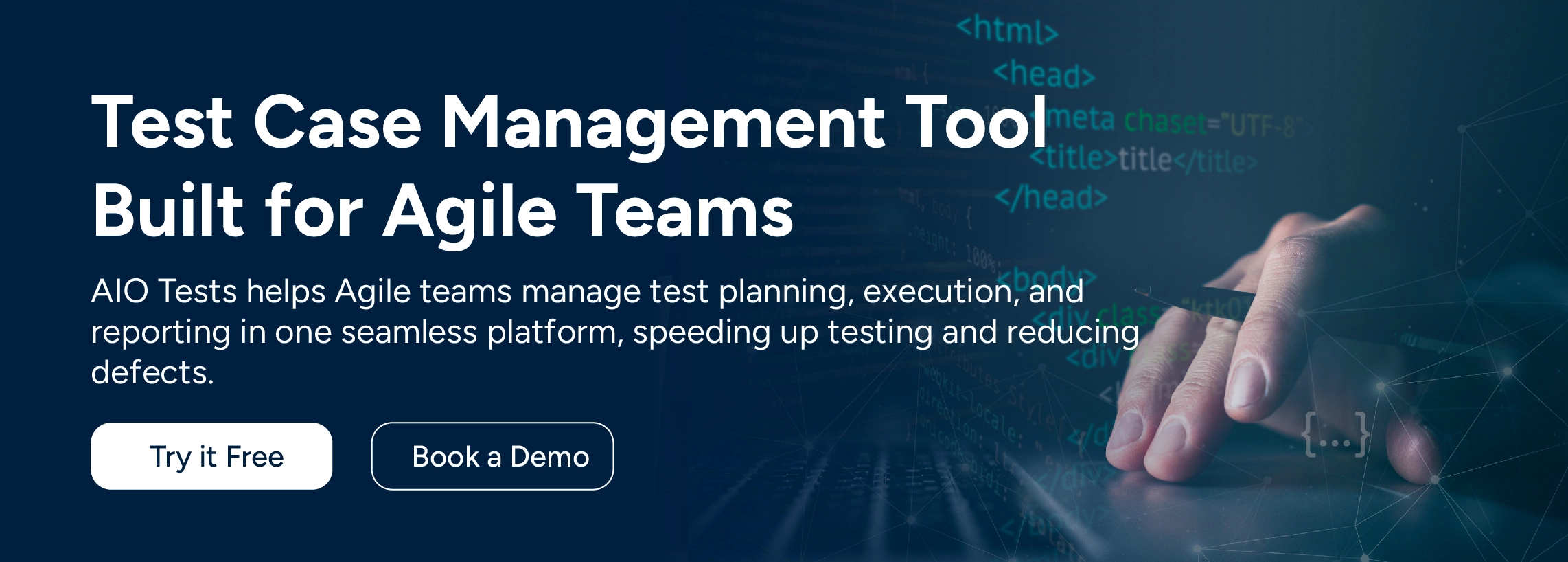
2. Qase
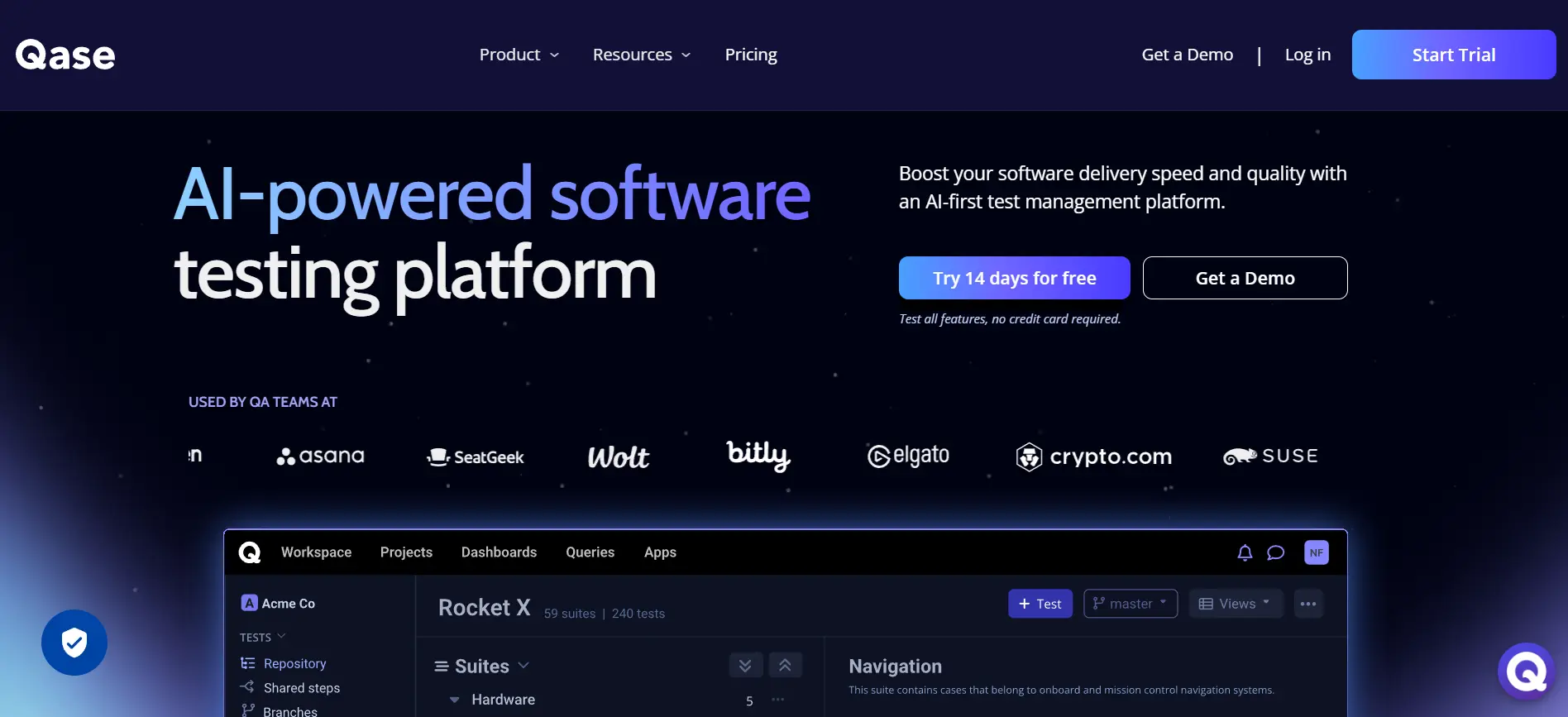
Qase is a modern QA test management software designed to simplify test management for teams. It streamlines both manual and automated QA testing processes within a unified platform. With an intuitive interface and powerful reporting capabilities, Qase is ideal for agile and DevOps teams seeking effective QA software testing tools to improve workflow efficiency.
Qase Features
- AI-powered Test Case Creation: Automatically generate detailed test cases from user stories and requirements, significantly reducing manual effort.
- Centralized Test Case Management: Organize all test cases in one repository with options to import from Excel or CSV files.
- Customizable Dashboards: Tailor dashboards to track testing progress, metrics, and quality indicators.
- Integrations: Seamlessly integrates with Jira, GitHub, GitLab, and popular CI/CD tools like Jenkins and CircleCI.
- Real-time Reporting & Analytics: Generate detailed reports to monitor QA testing techniques and make data-driven decisions.
- Collaboration: Supports role-based access, comments, and test sharing for improved team collaboration.
- Automation Support: Supports test automation by working with automation frameworks to import test results and manage hybrid testing types.
Pricing
- Free Plan
- Startup Plan: $24 per user
- Business Plan: $30 per user per month
- Enterprise Plan: Custom pricing
3. Xray
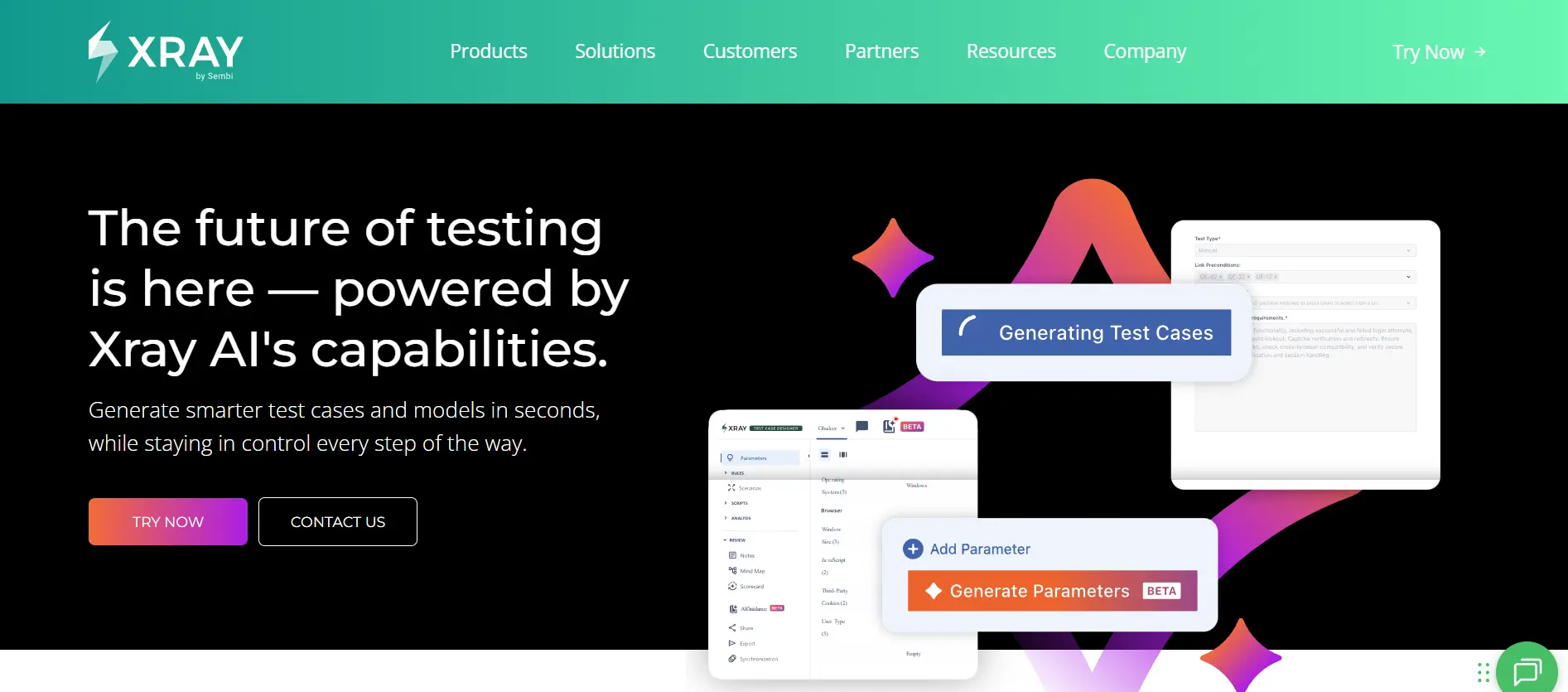
Xray is a Jira-based QA test management software that fully integrates within the Jira ecosystem. It provides comprehensive traceability and reporting for both manual and automated tests, making it a top choice for teams focused on defect tracking and quality control linked directly to their development cycles.
Xray Features
- AI-Powered Test Case & Model Generation: Leverage Xray AI to instantly create manual or BDD test cases and visual test models from requirements, improving coverage and accelerating test design.
- Native Jira Integration: Fully embedded in Jira, Xray connects user stories, requirements, and defects directly to tests, ensuring seamless collaboration and traceability within the development ecosystem.
- Manual & Automated Test Management: Manage both manual and automated tests (via Cucumber, Selenium, JUnit, and CI/CD pipelines) in one place, keeping execution results synchronized across tools.
- Comprehensive Reporting & Traceability: Gain real-time visibility through custom dashboards and coverage reports, linking every requirement to its corresponding tests and defects.
Pricing
- Standard Plan: Starts at $10 per month for 10 users.
- Advanced Plan: Starts at $12 per month for 10 users
4. TestRail
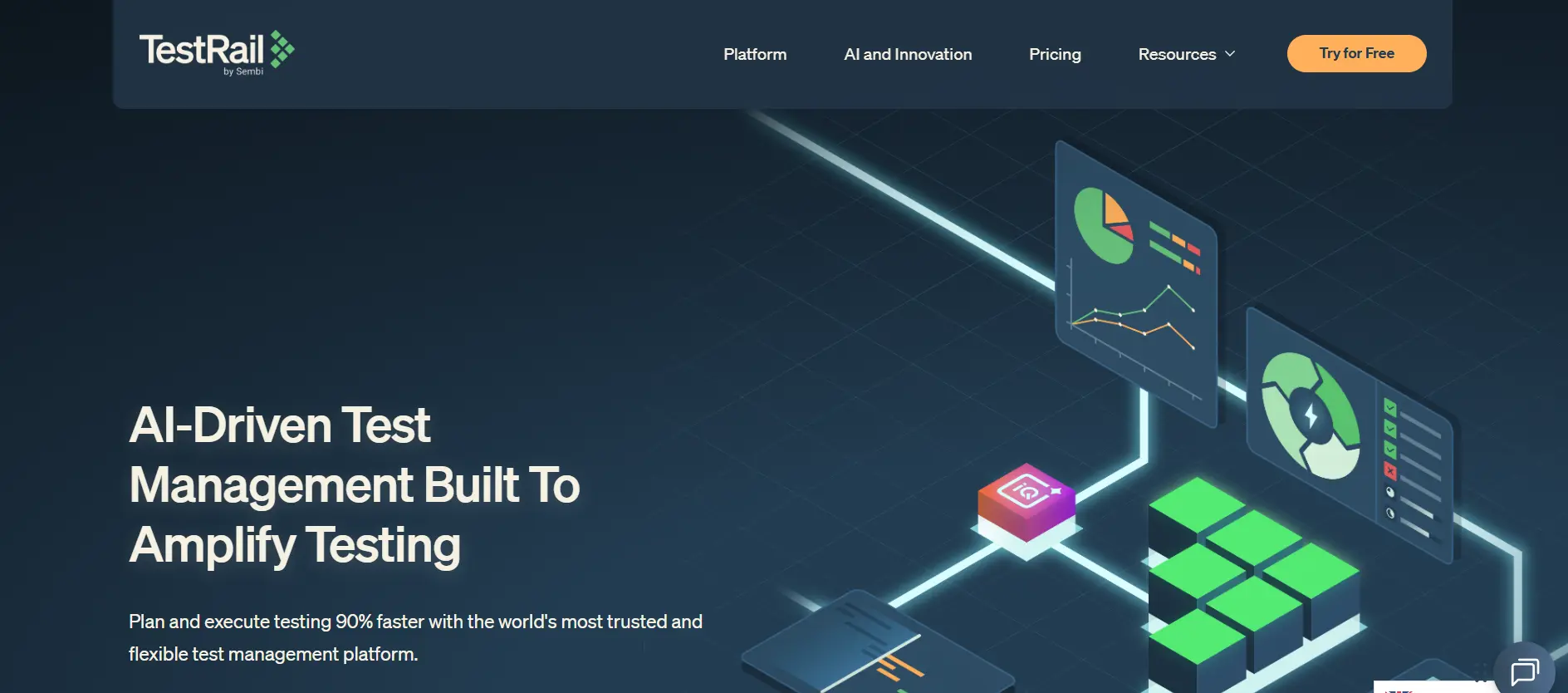
TestRail is a leading QA software testing tool known for its flexibility and robust reporting. It centralizes test case management and tracking to support complex testing environments, helping teams optimize QA testing techniques effectively.
TestRail Features
- AI-Driven Test Management: Automatically generate test cases and BDD scenarios from requirements using AI, helping teams plan and execute testing up to 90% faster while maintaining full human control.
- Manual & Automated Workflows: Integrates seamlessly with CI/CD tools like Jenkins, Azure DevOps, and GitLab, allowing teams to manage and track both manual and automated tests in one place.
- Compliance-Ready Insights & Reporting: Provides customizable dashboards and traceability reports that link requirements, test cases, and defects, ensuring audit-ready documentation and improved visibility into test coverage and quality.
- Flexibility & Integrations: Supports role-based access, audit trails, and workflow customization, while connecting effortlessly with Jira and other major platforms for a fully integrated QA ecosystem.
Pricing
- Cloud Plan: Starts at $39 per user per month for small teams.
- Enterprise Plan: $69 per user per month with additional advanced features.
5. PractiTest
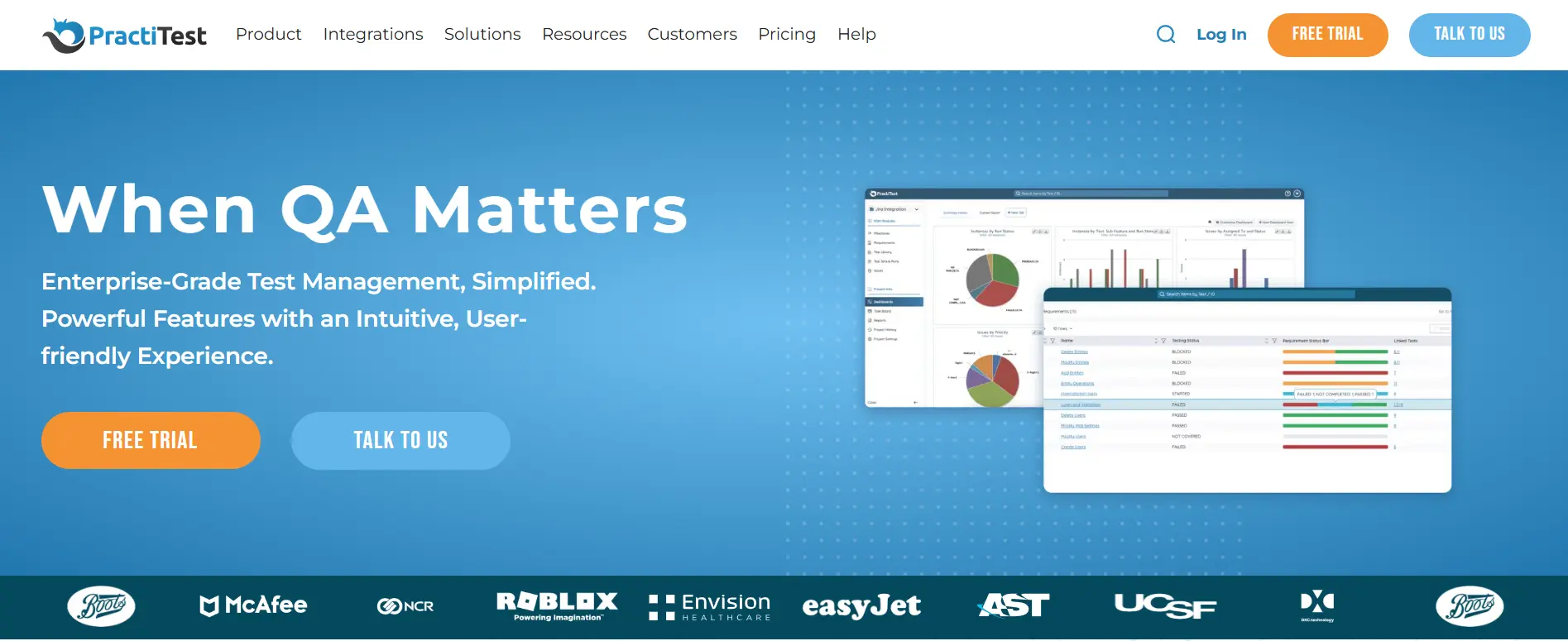
PractiTest offers a comprehensive QA test management tool focusing on flexibility and traceability. It supports test case creation, execution tracking, and extensive reporting for teams prioritizing quality assurance and process visibility.
Key Features
- AI-Powered Testing: PractiTest’s SmartFox AI helps automatically create and optimize test cases, while ValueScore prioritizes testing based on business impact, making your QA process smarter and more efficient.
- Traceability & Scalability: Designed for large, complex environments, PractiTest ensures end-to-end traceability from requirements to defects, supporting regulated industries and enterprise-level QA operations.
- Customizable Workflows & Reporting: Teams can fully customize fields, dashboards, and reports to fit their methodologies, gaining clarity and control over every testing phase.
- Agile-First & Seamless Integrations: Built for Agile and CI/CD pipelines, PractiTest integrates easily with tools like Jira, GitHub, and Jenkins, ensuring smooth collaboration and continuous delivery.
Pricing
- Team Plan: $49 per user per month, suitable for a team size of 5.
- Corporate Plan: Customizable
6. BrowserStack
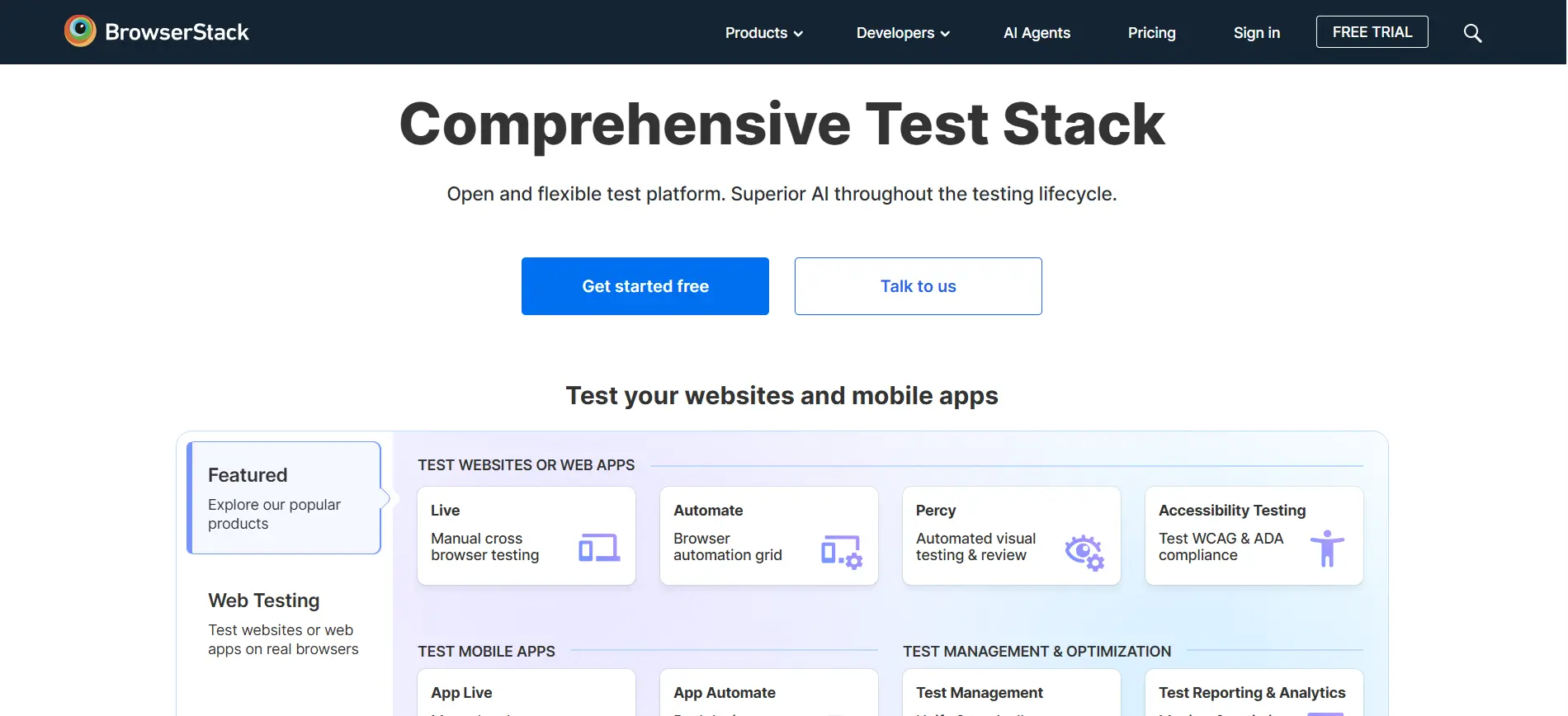
BrowserStack is a cloud-based testing platform that enables developers and QA teams to test websites and mobile applications across a wide range of real browsers and devices. It supports manual, automated, visual, and accessibility testing, helping teams improve test coverage and product quality. The platform offers integrations with CI/CD tools and bug tracking solutions, making it easy to fit into existing workflows.
BrowserStack Features
- Real Device and Browser Testing: Test on thousands of real devices and browser versions without the need for local device labs.
- Automation Support: Integrates with Selenium, Appium, Cypress, Playwright, and other frameworks for large-scale automated testing.
- Visual and Accessibility Testing with Percy: Detect visual regressions and verify WCAG/ADA compliance directly within your workflow.
- Seamless CI/CD and Tool Integrations: Connect with Jenkins, Jira, Slack, GitLab, Travis CI, and more for streamlined reporting and bug reproduction.
Pricing
- Desktop: $29 per month
- Desktop & Mobile: $39 per month
- Team: $150 per month
- Enterprise: Custom pricing
7. Testmo

Testmo is an all-in-one QA tool that unifies manual, exploratory, and automated testing in one interface. It supports CI/CD integrations, customizable dashboards, and real-time reporting, providing agile teams with flexible QA software testing tools and improved visibility across testing efforts.
TestMo Features
- Test Management: Centralizes test cases, exploratory testing, and automation results in a single, unified platform.
- Exploratory Testing Sessions: Built-in support for session-based testing and note-taking, ideal for uncovering issues during rapid release cycles.
- Automation Integration: Connects with any automation framework or CI pipeline, enabling CI/CD in automation testing by automatically collecting and displaying test run results.
- Powerful Reports & Metrics: Provides rich analytics, project milestones tracking, and team productivity insights for data-driven QA management.
Pricing
- Team Plan: $99 per month for up to 10 users.
- Business Plan: $329 per month for larger teams requiring advanced features.
- Enterprise Plan: $549 per month for enterprise teams
Conclusion
Selecting the right QA test management software is essential for teams aiming to stay competitive in 2026. As software development becomes more complex, an effective test management tool helps streamline workflows, reduce manual effort, and ensure better quality control.
With AI-powered features and seamless Jira integration, AIO Tests stands out as one of the best solutions for teams looking to optimize their testing processes. It simplifies test case management, improves collaboration, and offers real-time reporting all within a familiar Jira environment.
For faster, smarter testing, AIO Tests is the best choice. Book a demo today and experience the benefits for yourself.
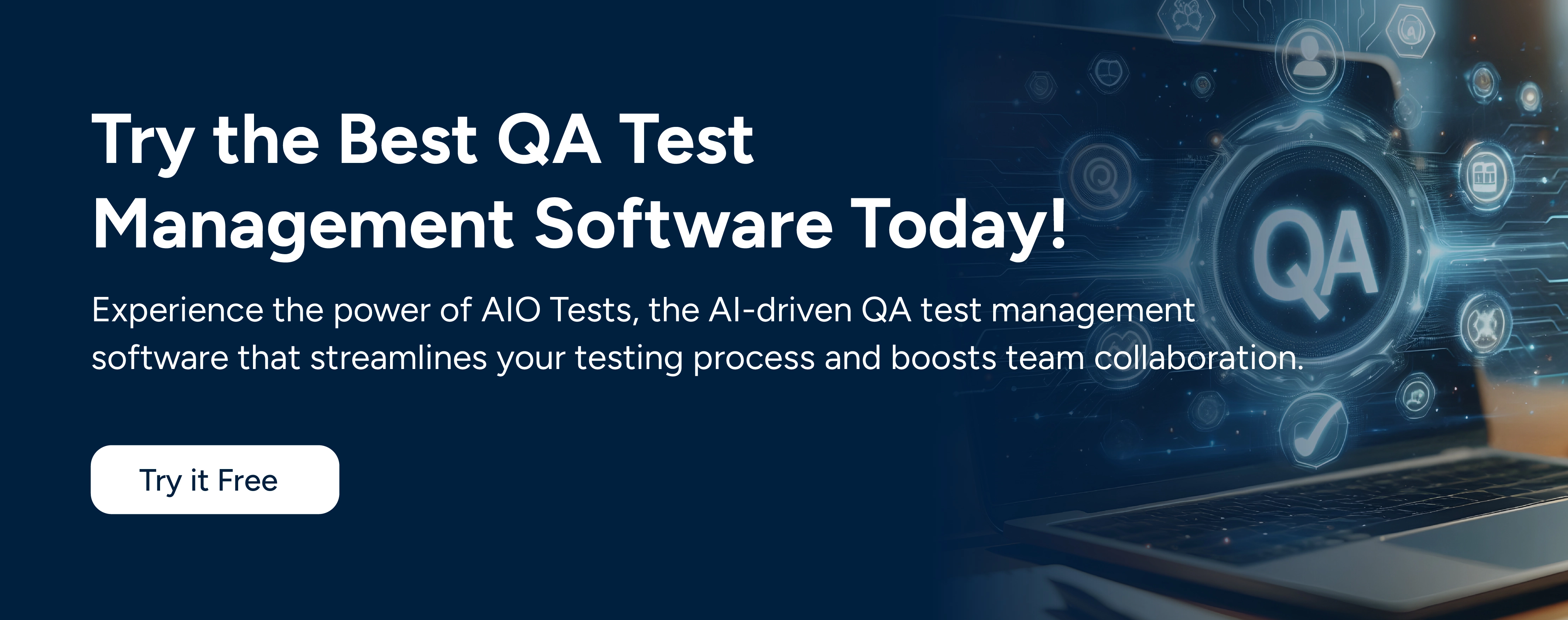
FAQs
- What are the key features of QA test management software?
QA test management software typically includes features like test case management, test execution tracking, real-time reporting, integration with other tools, AI-powered test case generation, and collaboration features. These help streamline the testing process and improve overall team efficiency.
- How can QA test software help improve testing efficiency?
QA test software helps improve testing efficiency by centralizing test case management, automating repetitive tasks, and providing real-time insights into testing progress. It allows teams to quickly identify issues, prioritize testing efforts, and reduce the time spent on manual tasks.
- What are the benefits of using AI in QA testing?
AI in QA testing offers benefits like automated test case generation, predictive analytics for defect detection, and smarter decision-making. It helps reduce human errors, speeds up the testing process, and ensures more comprehensive coverage.
- How does QA test management software integrate with other tools?
QA test management software integrates with various tools like Jira, GitHub, Jenkins, Selenium, and more. This integration ensures that test cases, defects, and progress can be tracked and managed seamlessly across different development stages and teams.








.svg)
